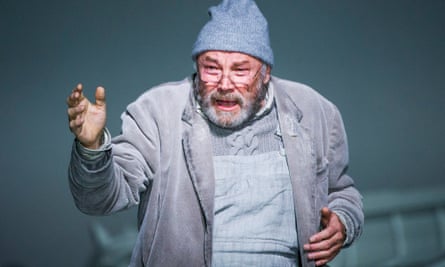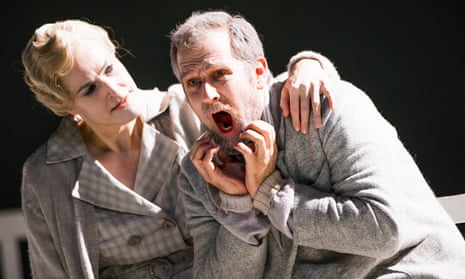“Morgen und Abend is the struggle of Johannes into and out of life.” This is all we are given as a programme synopsis for Georg Friedrich Haas’s new opera, an immensely serious, essentially religious work that deals with birth and dying as the only absolute certainties of the human condition. We watch the beginning and end of a life, but not its course. The fisherman Olai (actor Klaus Maria Brandauer) waits for his son Johannes to be born. Later, Johannes himself (baritone Christoph Pohl), also a fisherman, is conducted to the afterlife by those who preceded him – his wife Erna (Helena Rasker), and his friend Peter (Will Hartmann) – leaving his daughter Signe (Sarah Wegener) to grieve alone.

The text, adapted by Norwegian writer Jon Fosse from his own novel, blends Beckettian verbal repetitions with the riddling paradoxes of mysticism – “Everything is different but without difference,” Peter tells Johannes of what awaits him. Birth, according to Haas, “is a brutal and terrible act”, and battering percussion accompanies Johannes’s entrance into the world. Death is approached by quickening and slackening pulses, and by shifting soundscapes that pull in and out of harmonic focus, though Peter, his significance overlaid with the image of Christ’s eponymous disciple as a “fisher of men”, makes his first appearance to echoes of Renaissance church music.
Beautiful though it sounds, it is weak as drama, with longueurs in its 90-minute span, which neither superb performances nor Michael Boder’s expert conducting can disguise. Graham Vick’s stark staging owes much of its force to Giuseppe di Iorio’s chiaroscuro lighting, as a huge arc light tracks the course of Johannes’s death before swinging round to engulf us all in a final intimation of our own mortality.

Comments (…)
Sign in or create your Guardian account to join the discussion